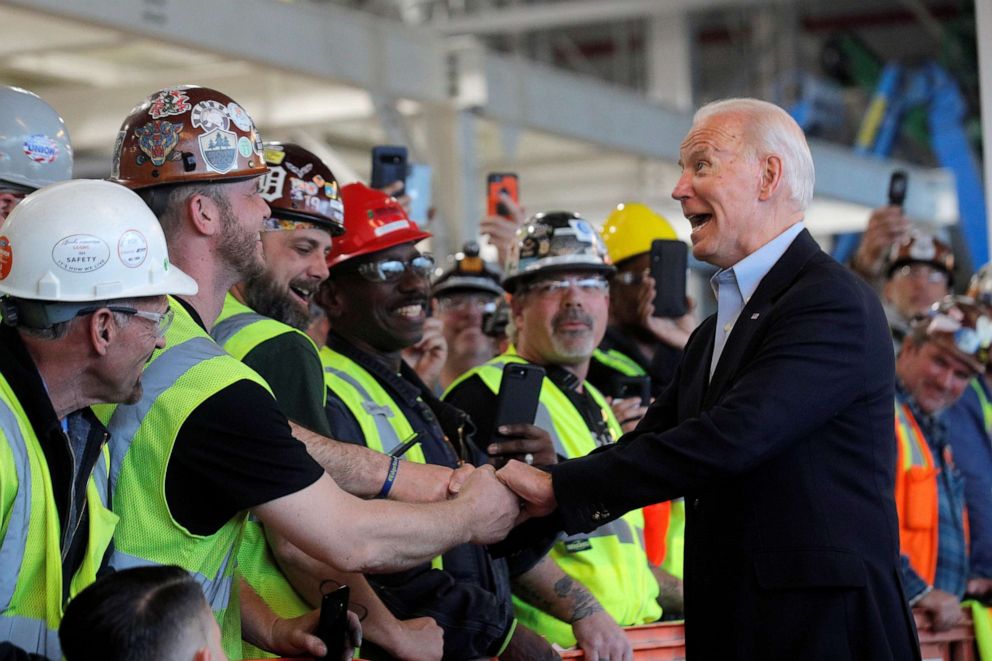Biden’s Buy American Plan

I suppose this is inevitable in a campaign. As inevitable as showing a bunch of ads of farms, as if any appreciable percentage of Americans are farmers anymore. But I still find Biden’s “Buy American” economic nationalism not very helpful.
Joe Biden unveiled a proposal Thursday to spend $700 billion on American products and research, challenging President Donald Trump’s “America First” agenda with a competing brand of economic nationalism and setting the stage for an election-year showdown over the country’s financial future.
“When we spend taxpayers’ money – when the federal government spends taxpayers’ money – we should use it to buy American products and support American jobs,” Biden said in a speech at a metal works plant in Dunmore in Pennsylvania, a crucial battleground state.
The announcement marked an effort by Biden to begin laying out his agenda in more detail after months in which his central message was Trump’s failures. It also amounted to a recognition that while Trump trails in the polls, many voters support his handling of the economy.
The president has been arguing for months that the economy will regain its momentum when business, restaurants and other operations are allowed to reopen. Some Trump allies were frustrated Thursday that Biden offered his plan before the president announced a similar “Buy American” proposal that officials say has been held up for months amid internal White House objections.
“They are essentially trying to steal the Trump program of 2016 and steal that playbook,” Trump’s former chief strategist Stephen Bannon said on his radio program. “For some reason, the White House and the campaign have been caught flat-footed. Biden has very smart people around him, particularly on the economic side.”
Again, this is pretty much inevitable. Moreover, Biden is all in for winning the Wisconsin/Michigan/Pennsylvania triumvirate that killed Democrats in 2016 and these politics play very well in those states. But it also doesn’t recognize the realities of globalization or industrialization. It doesn’t move forward a plan for a just globalization that holds American corporations accountable for their crimes abroad and in their supply chains. It doesn’t seek to create a new regulatory apparatus that travels with the companies wherever and however they source their materials. In other words, it really doesn’t do much of anything useful except put forward a political talking point.
But then how surprising is this? Bernie Sanders pretty much said the same sorts of things. And even though I have attempted to lay out an alternative model of trade and industrial policy that bridges the gaps between nationalism and an unfettered broken system of free trade that also attempts to build toward global solidarity instead looking inward, it just is no one’s priority to move in a different direction. Except mine I guess.


